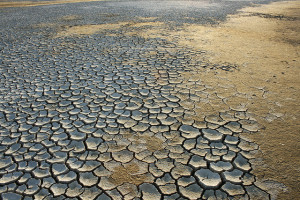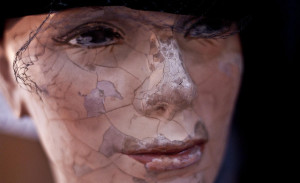How to tell if your Skin is Dry or Dehydrated
A common skincare mistake is treating dry and dehydrated skin the same way. Each has a different cause therefore requires its own skincare regimen. Applying the wrong regimen could further harm skin potentially leading it to age prematurely. Read on for tips on how to tell if your skin is dry or dehydrated and what to do about it.
What is dry skin?
Dry skin is a skin type whose cause is not entirely clear. Sometimes the cause of dry skin is genetics while other times it’s the product of hormonal changes in the body. Whatever the reason, spotting dry skin is relatively easy. Dry skin is characterized by lack of natural oils, or sebum, that are present in normal skin types. Dry skin will look rough and scaly and may also be sensitive or inflamed. Also, wrinkles or fine lines can look more pronounced.
It’s a misconception that completely oil free skin is healthy. A thin layer of sebum is necessary to protect skin and keep it hydrated. Harsh cleansers and bath sponges actually strip the skin of the natural oils needed to keep moisture sealed in. These natural oils also fight against free-radicals in the environment that can damage and cause the skin to age over time. As natural oils decrease skin becomes more sensitive and inflamed leading to collagen break down.
Dry skin solutions:
- Choose moisturizers that are rich in natural oils and butters.
- Use a cleanser that’s creamy. It will most likely contain niacinamides and ceramides which help retain natural oils and not strip them away.
- Avoid bar soaps and harsh cleansers and use hands or a soft washcloth over sponges to cleanse your body.
- Follow up facial cleansing with a toner to balance pH levels, followed with a nutrient rich moisturizer.
- Partake in oil-based anti-aging facial massages like the one incorporated into The Geisha Facial®
What is dehydrated skin?
Dehydrated skin is a skin condition that’s temporary. Cold weather and illness can easily prompt skin to become dehydrated as well as not drinking enough water. Dehydrated skin is tight and flaky and appear dull and tired.
In a nutshell, dehydrated skin means that your skin lacks water. When the weather is cold skin can easily become dehydrated since the cold air zaps water from the skin. Dehydrated skin is easier to treat than dry skin since dry skin is a skin type that needs to be cared for constantly. Dehydrated skin can come and go. The first step to alleviating dehydrated skin is to..well..hydrate! Drinking enough water is the first step to quell your skin’s thirst for moisture. Remember biology class? The cells in your skin need water to fill out and when they do your skin will appear plumper and more supple.
Dehydrated skin solutions:
- Drink more water and incorporate more water-based foods such as fruits and vegetables into your diet.
- Topical serums like hyaluronic acid gel will help your skin retain moisture throughout the day.
- Apply a moisturizer immediately after washing your skin. It will lock in moisture and will reconstitute dehydrated skin throughout the night while you sleep.
- Use a humidifier to surround your skin with moisture as you sleep.
Related Blog Posts:


